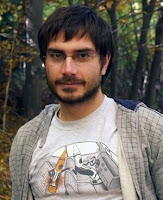Professor Ian Duncan Returns from Sabbatical
Our first blog post of this year detailed some reading recommendations which members of our department had read over the summer. Having just recently returned from a year-long sabbatical, Professor Ian Duncan supplied a wonderful list as well. What follows is a brief account of Professor Duncan’s doings in Turkey interspersed with a bevy of titles which might catch your eye. [Read full post…]

The view looking out over the Bosphorus and our local Greek Orthodox church from the house where Professor Duncan stayed in Istanbul


 The English Department proudly congratulates Professor Namwali Serpell on her inclusion in this year’s edition of
The English Department proudly congratulates Professor Namwali Serpell on her inclusion in this year’s edition of 
 Nuruddin Farah—among the foremost of contemporary African writers, author of numerous novels including the trilogies Variations on the Theme of An African Dictatorship and Blood in the Sun, and recipient of the 1998 Neustadt International Prize for Literature—delivered this year’s English Department commencement address at the Greek Theatre on May 16. You’ll find the text below the fold.
Nuruddin Farah—among the foremost of contemporary African writers, author of numerous novels including the trilogies Variations on the Theme of An African Dictatorship and Blood in the Sun, and recipient of the 1998 Neustadt International Prize for Literature—delivered this year’s English Department commencement address at the Greek Theatre on May 16. You’ll find the text below the fold.


